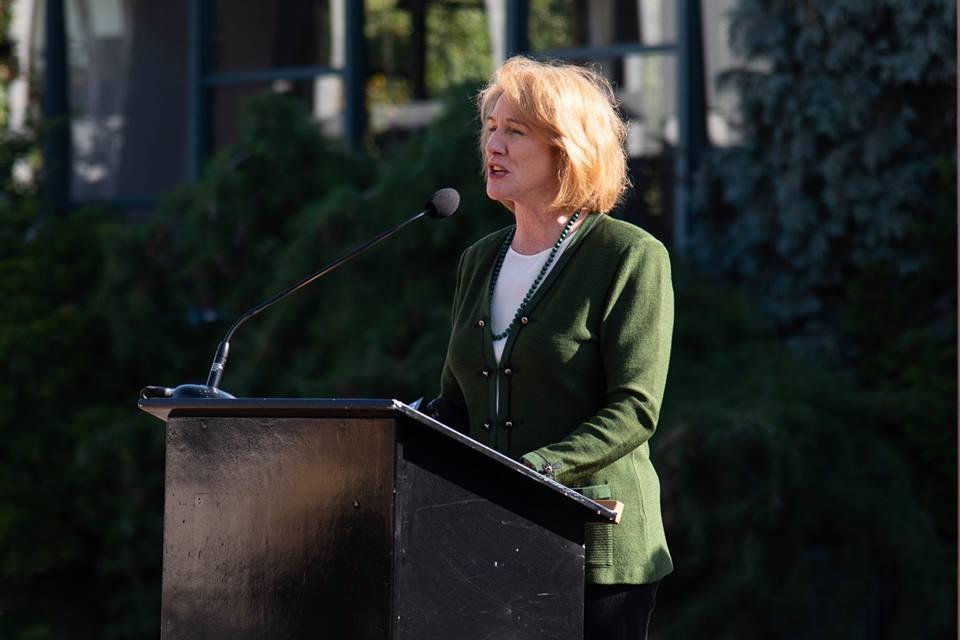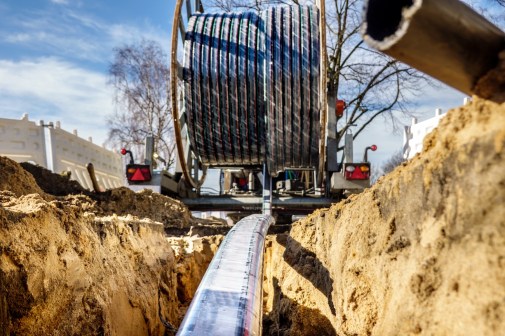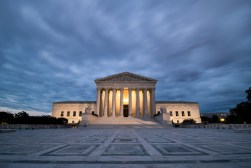Cities are preparing to sue FCC over new ‘unlawful’ 5G antenna rules

City leaders made moves Tuesday suggesting they’re preparing to sue the Federal Communications Commission over new rules, announced last week , that restrict how local governments can regulate the installation of next-generation wireless technology.
In Seattle, Mayor Jenny Durkan and City Attorney Josh Holmes announced that they’re preparing a legal appeal of the FCC’s order made public last Wednesday. The order sets caps on both how much municipalities can charge wireless carriers to install small-cell antennas — devices, about the size of pizza boxes, capable of transmitting a 5G signal — on publicly owned structures like light poles, as well as how long governments have to review carriers’ applications to deploy the equipment.
“Seattle strongly opposes this overreach by the Trump administration,” Durkan and Holmes said in a press release from the city. “Instead of expediting the deployment of high speed internet or addressing digital inequity, the FCC’s actions impede local authority and will require cities to subsidize the wireless industry’s deployment for private gain, giving away public property without asking for anything in return.”
Also on Tuesday, the Portland, Oregon City Council held a special session authorizing the city attorney to file or join any lawsuit seeking to block the FCC’s decision. “This is a property grab by the federal government,” Mayor Ted Wheeler said during the hearing, according to the Oregonian .
Telecommunications firms have been racing to deploy 5G antennas — claimed to handle signals 100 times faster than the wireless industry’s current 4G LTE standards — as the first consumer networks near activation. But the 5G bandwidth requires a much denser network of antennas and relays.
Under the new federal regulation, carriers will pay a flat fee of $270 per small-cell antenna installed, compared to a national average of about $500 under a current patchwork of local ordinances that vary from state-to-state or city-to-city. The new rules also give municipal governments just 60 days to review applications for antenna installations on existing structures, or 90 if a carrier wants to erect a new pole.
Cities started hinting at legal action as soon as FCC approved its new order last week.
“We will consider all of our legal and political options to ensure the voices of local governments are heard, to achieve a more inclusive version of our digital future,” San Jose, California Mayor Sam Liccardo said last Wednesday.
Some cities, like San Jose — which has multimillion-dollar deals with both Verizon and AT&T to install 5G-capable antennas citywide — have entered formal partnerships with wireless companies as a way to ensure 5G networks reach wealthy and low-income neighborhoods alike. Other cities charge carriers variable rates to ensure new network equipment doesn’t go only to the wealthiest corners, such as New York, which collects annual small-cell installation fees ranging from $144 per antenna in underserved neighborhoods to $5,100 in the richest parts of Manhattan.
Other critics of the FCC argue that stripping cities of the ability to determine how much they charge companies to install wireless equipment could also leave skylines glutted with new antennas with little recourse for municipal governments.
“[B]y forcing cities to automatically grant permits to any company, the FCC has encouraged a future in which taxpayer-owned property is essentially controlled by telecom corporations, where competition is decimated and de facto monopolies in a trillion-dollar industry develop unchecked and where cities and towns are stripped of the tools they need to ensure the safety and aesthetic integrity of their own streets,” Laura Anglin, New York’s deputy mayor for operations, wrote in a letter published Monday by the Wall Street Journal .
No lawsuits have been filed yet, and Durkan’s office said Seattle will wait for the FCC rules to officially take effect on Oct. 15. But other cities are likely to follow Seattle and Portland’s lead. The U.S. Conference of Mayors, which strongly opposed the new 5G regulations, said last week that its members “now look to the federal courts to review and rectify this unlawful taking of local property, actions which we believe will compel local elected officials to subsidize, or ‘gift,’ local public property to a small, favored group of private businesses.”






